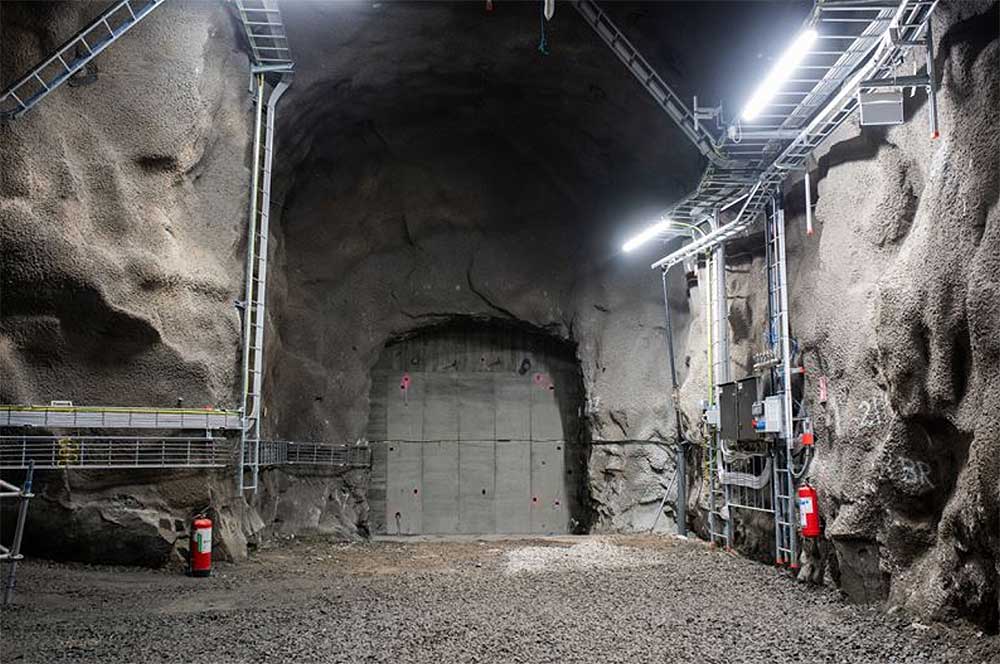Unlocking the Future: Why Underground Pumped Hydro Storage is the Key to Energy Security
November 2024
As the demand for sustainable energy solutions grows, so does the need for secure energy storage systems. Underground pumped hydro storage (UPHS) or pumped hydro storage (PHS) in spent mines or mountain rooms presents a compelling option. This approach offers significant advantages in terms of security and safety compared to surface energy storage solutions.

Natural protection from external threats
One of the primary benefits of UPHS is its inherent protection from external threats. Being located underground, these systems are shielded from natural disasters such as floods, storms, and wildfires. Surface storage facilities, on the other hand, are vulnerable to these events, which can lead to catastrophic failures. Moreover, underground facilities are less accessible to potential vandalism or terrorism. The depth and location of UPHS installations make them difficult targets, ensuring that critical energy infrastructure remains safe from malicious attacks.
In the event of war or aggression by foreign forces, the underground positioning of UPHS provides an additional layer of security. These systems are less likely to be targeted due to their concealed nature. This strategic advantage ensures that energy resources remain protected during times of conflict. The ability to maintain a reliable energy supply in such scenarios is crucial for national security and resilience. By safeguarding energy infrastructure, UPHS contributes to a nation's capacity to respond effectively to external threats.
Reduced risk of environmental impact
Environmental safety is a crucial consideration in energy storage. UPHS systems are designed to minimise the risk of contamination to surrounding ecosystems. In contrast, surface storage solutions can pose significant environmental hazards, especially in the event of leaks or spills. By utilising spent mines or mountain rooms, UPHS takes advantage of existing geological formations. This reduces the need for extensive land alteration, preserving the natural environment above ground. The underground setting also helps contain any potential leaks, preventing them from affecting surface water or soil.
Enhanced operational stability
Operational stability is another key advantage of UPHS. Underground facilities benefit from a more consistent temperature and pressure environment, which can enhance the longevity and efficiency of energy storage systems. Surface installations may experience fluctuations in temperature and weather conditions, impacting their performance. Additionally, the geological stability of underground sites reduces the risk of structural failures. Surface storage facilities may be susceptible to ground movement or erosion, which can compromise their integrity over time.
1. Underground pumped hydro storage enhances energy security.
2. It protects against natural disasters and vandalism.
3. UPHS reduces environmental contamination risks significantly.
4. Consistent conditions improve operational stability and efficiency.
5. Investing in UPHS ensures a reliable energy future.
Conclusion
In summary, underground pumped hydro storage solutions offer a more secure and safe alternative to surface energy storage systems. Their natural protection from external threats, reduced environmental impact, and enhanced operational stability make them an ideal choice for sustainable energy solutions. As the energy landscape continues to evolve, investing in UPHS technology will be crucial for ensuring a reliable and secure energy future. Furthermore, the strategic advantages of UPHS become even more apparent in times of geopolitical tension. The ability to safeguard energy resources from potential military threats is vital for national security. By prioritising such technologies, countries can enhance their resilience against external aggressors and ensure energy independence.
Follow us for more information at About us or Linkedin.